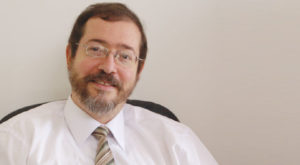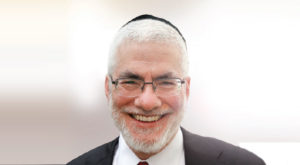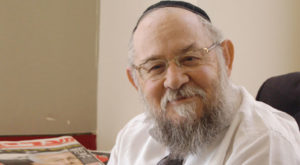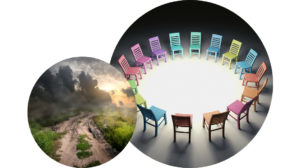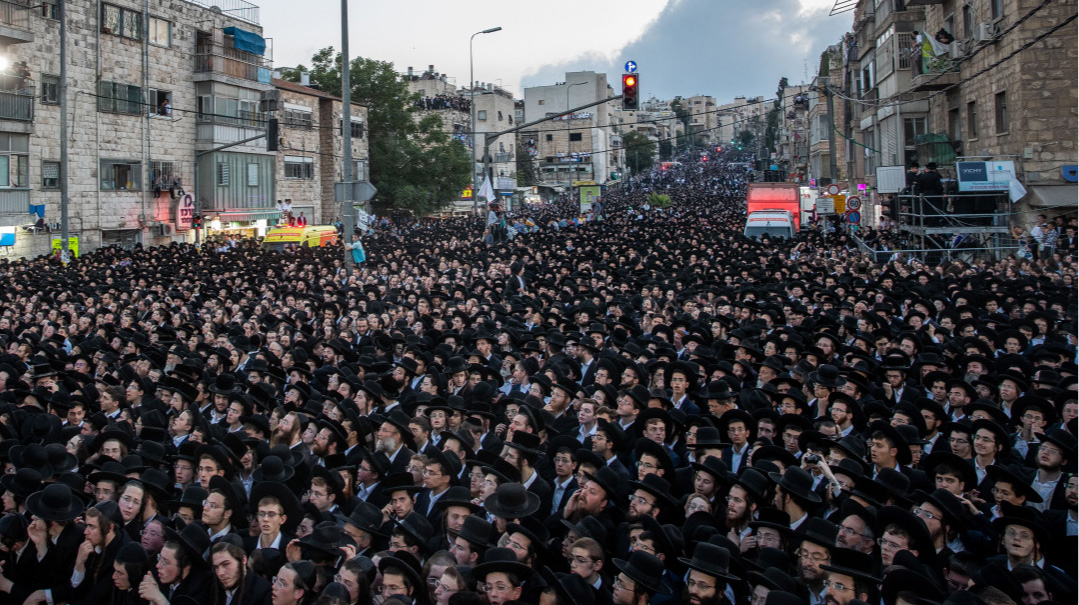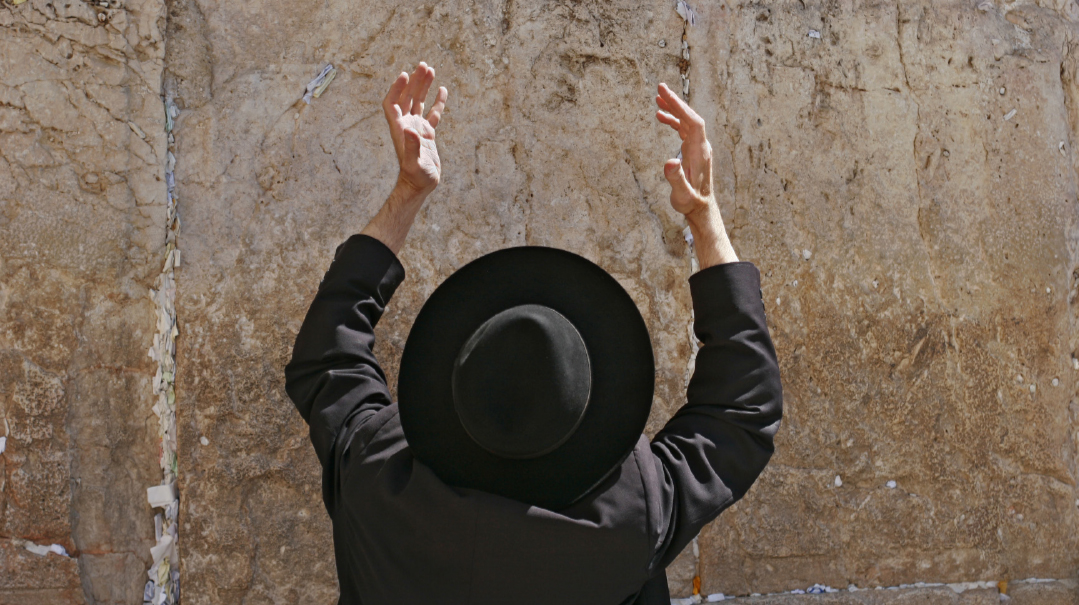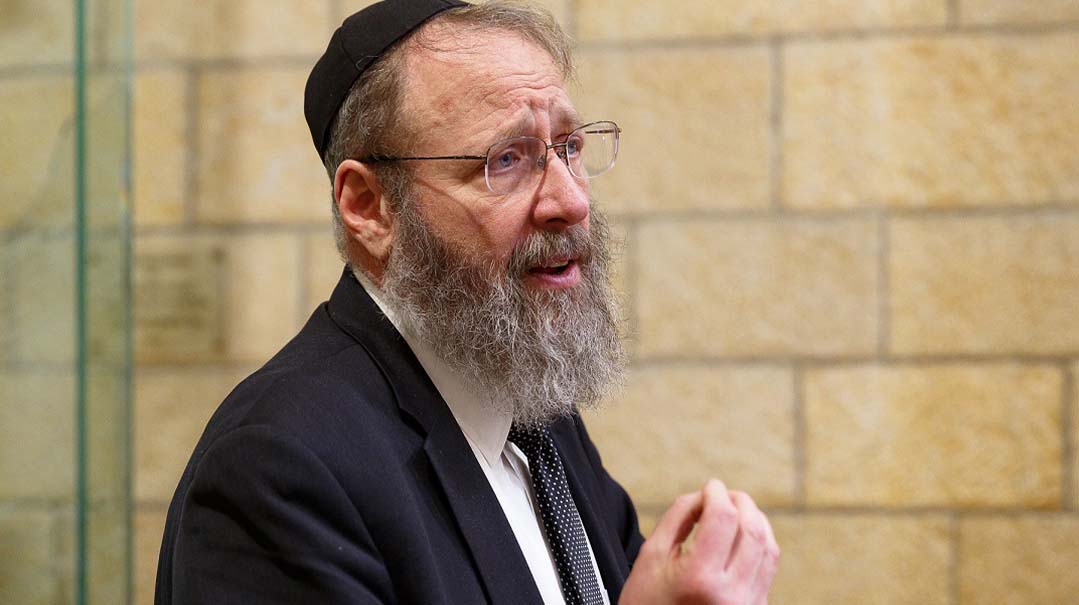On the Receiving End

I was used to doing it all. Could I now humble myself and ask for help?
Which is easier, giving or taking? When presented the opportunity to give to someone else or be a receiver, which would you prefer? In reality, both giving and receiving take mesirus nefesh — and when I had the opportunity to be a receiver this summer, it forced me to muster up all the courage and confidence I had just to say thank you and open my hand. Taking — asking and acknowledging the need for help — proved to be a wake-up exercise in self-effacement and letting go.
This past June, our family was blessed with a new baby. And before our baby was even born, I had already fallen into the trap of the frum superwoman and comfortably projected, from my living room couch, that a meal train would be completely unnecessary. After all, I wasn’t an inexperienced first-time mother. I didn’t need to rely on anyone’s help. And I most certainly didn’t want to put anyone out, considering they would be cooking for a whole family. Anyway, my children were picky eaters and would likely reject the meals and opt for Wacky Mac instead.
Admittedly, I had this bizarre and unfair notion in my mind that experienced moms with families that include teenagers just don’t need help. We seasoned moms knew what we were doing. In my idealized conception of what frum families look like, I imagined this mother slipping back into her regularly scheduled program of cooking dinners, sending kids off to school, running the home, and everything else. Just this time she would have a baby in tow. Since she was an experienced mom who knew the ropes, a new baby wouldn’t make such a huge difference. What’s one more added to the bunch?
Fast-forward to the bris of our new addition, and I couldn’t stand for long on my feet. I was walking out of the shul with the baby on the pillow and had to pass the little bundle to the nearest friend — quick. You see, I had some unexpected complications following the birth. And then, just three days before the bris, I was in the emergency room. The doctors explained that it would take three months for me to fully recover. I was going to need some help, since this time it was going to be impossible for me to do it all on my own.
Even making the bris was an opportunity for me to accept help. I was in no state for bris preparations and wasn’t interested in hiring a party planner and making a whole bash. This baby joins a family of brothers and sisters who have other more pressing financial requirements.
A friend stepped in and called the Cleveland Bris Gemach, and a dedicated group of volunteers took care of everything. This unbelievably thoughtful and helpful service is provided for anyone in the community at a time when families need the help the most, days after the birth of a new child, and who don’t want to or can’t pay for expensive catering and décor. They did all the shopping and setting up. All I had to do was reimburse them. We walked into the bris not having to lift a finger.
At the seudah, a good friend told me she had heard from my mother what I was going through, and she was creating a meal train for me starting then. She already had the first sign-up who would be bringing dinner that night: the shul rebbetzin. My friend took charge, and all I could do was say thank you and accept the help. The feeling of relief that washed over me was enormous.
To the onlooker, everything looked fine, especially when we were all in our Shabbos clothes smiling for the pictures. It took the care and concern of a special friend to do some digging beneath the surface.
LOOKING AT THAT LIST of meal train participants in my e-mail was the greatest gift — but opening the door to accept a box of food from another family was humbling. Clearly, time, effort, and resources were put into providing my family a meal. Those people got out of the chaos of their lives and made a space for us. When it felt like there was never enough time in a day, they made time. And their sacrifice made the biggest difference to our family. I was astounded by the generosity and kindness of it all — feeding my family when we needed it the most. And perhaps most importantly, feeding me so I could get back on my feet.
In my fallacious idealizations, in my lack of touch with reality, I neglected to consider how one more added to the bunch creates a whole new world, and how homemade meals would nourish the parents, even if the kids refused to eat them.
Why did I think childbirth was no big deal? Why did I think I could do it all? Why was I worried about burdening others? Why didn’t I think about my needs and the needs of my husband? And why did I find it so hard to receive?
While this story surrounds a uniquely female experience, the takeaways apply to anyone who has ever needed to take help from another. It takes strength and confidence to accept help, and even more to ask for it. It means stripping ourselves down to our most vulnerable states, getting our egos out of the way, and recognizing that we just can’t do it all. That we need to rely on others. That we can’t be in charge of everything. And that ultimately, it means relinquishing control and relying more on Hashem.
Being a recipient of chesed wasn’t easy (watching my visiting family clean up after Shabbos meals while I did nothing was pretty much torture), but it taught me how to take when I needed to the most, and hopefully how to give more freely in the future. It taught me the true meaning of empathy, and that those who come to help you when you can’t help yourself are lifesavers.
There is another story that emerges that is also relevant for the community as a whole. It’s a hard story to tell, because it cracks at the veneer and let’s others in on what’s really going on. It shatters the myth of the frum superwoman — and man. And family. There’s only so much pretending we can do, and sometimes we need to acknowledge that when things are tough, when our families are experiencing shifts and transitions, we need support.
We look around and see family after family making simchahs in honor of their new additions, baruch Hashem. Another bris, another kiddush, another shalom zachor. It is these times that often coincide with physical and emotional challenges: a difficult pregnancy, a challenging childbirth, a recovering mother — all of which impact the family unit. But just because Mom looks more or less back to normal doesn’t mean she is back to normal. The reality is that bringing a new child into the family is a momentous, life-altering experience where everyone is impacted, and people need help to manage. Not everyone is blessed with family close by, or family that has the ability to stop what they’re doing and provide help. Mothers need help; fathers need help. We’re not meant to do this alone.
While someone reading my story might assume that everyone who came to my aid was from my circle of friends and take away the lesson that we should all make sure to have a village of support in case of emergencies, that is only partially true. It is the small acts of kindness provided by anyone wanting to give that make huge differences in people’s lives.
Some of those who brought meals were people I didn’t even know or were just acquaintances through the community. Yes, having friends, a shul, and a community is a village. There are also incredible Jewish people out there whose desire to help transcends any shul or social affiliation. They stop everything they’re doing to share in your simchah and help out.
TO THE PEOPLE WHO DROPPED OFF a candy platter or baked goods for our shalom zachor, thank you for sharing in our simchah. When you left us a cellophane package at the front door or entered our home and handed our out-of-town family your contribution, it made a huge impression (Cleveland is amazing!) and filled our home with joy. To the people who dropped off meals, thank you for not only sharing in our simchah, but teaching me what it means to give and to receive. You stepped in and became our village. I hope to be able to pay it forward.
My challenges were short-lived. For many in our communities, though, struggle, pain and illness are long-lasting. The Orthodox community is an undisputed model in chesed, and there are so many opportunities for us to lend a hand without waiting to be asked. Whether we make efforts to share people’s burdens or share in people’s simchahs, let’s help one another out — and just as important, acknowledge when we need the help ourselves.
Alexandra Fleksher is an educator, a published writer on Jewish contemporary issues, and an active member of her Jewish community in Cleveland, Ohio.
(Originally featured in Mishpacha, Issue 794)
Oops! We could not locate your form.

